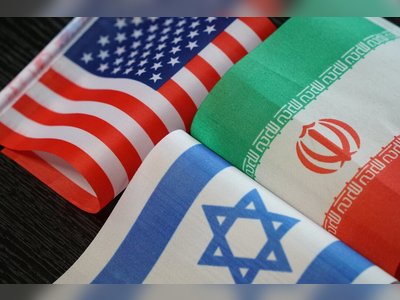Putin Open to Meeting with Trump for Calm Discussions
Russian President signals willingness to engage with former U.S. President amidst ongoing geopolitical tensions.
Russian President Vladimir Putin has expressed his readiness to meet with former U.S. President Donald Trump for discussions aimed at easing tensions and exploring common ground.
This announcement comes amid Russia's complex international positioning and its strained relationship with Western countries, particularly the United States, following several contentious global issues.
Putin's invitation to Trump surfaces at a time of heightened scrutiny over Russia's foreign policies, especially its involvement in Ukraine and interactions with NATO member states.
By expressing openness to dialogue with Trump, Putin signals a potential avenue for reducing diplomatic strains that have persisted since Trump's presidency from 2017 to 2021.
Throughout his tenure, Trump maintained a distinctive relationship with Putin, occasionally characterized by direct communication and controversial diplomacy.
This contrasts with the approach of the current U.S. administration under President Joe Biden, which has adopted a more cautious and critical stance on Russian affairs.
Key concerns for the Biden administration include cybersecurity threats, allegations of electoral interference, and Russia's military maneuvers in Eastern Europe.
Though no specifics regarding the agenda or timing of a Putin-Trump meeting have been released, the prospective dialogue between the two leaders is likely to draw the attention of the international community.
Observers note that such a meeting holds potential implications for global diplomatic dynamics, particularly influenced by existing sanctions and international strategies in response to Russia's actions.
As the geopolitical climate continues to shift, any engagement between Putin and Trump might impact the broader landscape of international relations, though the precise outcomes remain uncertain.
The possibility of renewed dialogue underscores evolving narratives in diplomacy and global power relations.
This announcement comes amid Russia's complex international positioning and its strained relationship with Western countries, particularly the United States, following several contentious global issues.
Putin's invitation to Trump surfaces at a time of heightened scrutiny over Russia's foreign policies, especially its involvement in Ukraine and interactions with NATO member states.
By expressing openness to dialogue with Trump, Putin signals a potential avenue for reducing diplomatic strains that have persisted since Trump's presidency from 2017 to 2021.
Throughout his tenure, Trump maintained a distinctive relationship with Putin, occasionally characterized by direct communication and controversial diplomacy.
This contrasts with the approach of the current U.S. administration under President Joe Biden, which has adopted a more cautious and critical stance on Russian affairs.
Key concerns for the Biden administration include cybersecurity threats, allegations of electoral interference, and Russia's military maneuvers in Eastern Europe.
Though no specifics regarding the agenda or timing of a Putin-Trump meeting have been released, the prospective dialogue between the two leaders is likely to draw the attention of the international community.
Observers note that such a meeting holds potential implications for global diplomatic dynamics, particularly influenced by existing sanctions and international strategies in response to Russia's actions.
As the geopolitical climate continues to shift, any engagement between Putin and Trump might impact the broader landscape of international relations, though the precise outcomes remain uncertain.
The possibility of renewed dialogue underscores evolving narratives in diplomacy and global power relations.
AI Disclaimer: An advanced artificial intelligence (AI) system generated the content of this page on its own. This innovative technology conducts extensive research from a variety of reliable sources, performs rigorous fact-checking and verification, cleans up and balances biased or manipulated content, and presents a minimal factual summary that is just enough yet essential for you to function as an informed and educated citizen. Please keep in mind, however, that this system is an evolving technology, and as a result, the article may contain accidental inaccuracies or errors. We urge you to help us improve our site by reporting any inaccuracies you find using the "Contact Us" link at the bottom of this page. Your helpful feedback helps us improve our system and deliver more precise content. When you find an article of interest here, please look for the full and extensive coverage of this topic in traditional news sources, as they are written by professional journalists that we try to support, not replace. We appreciate your understanding and assistance.











